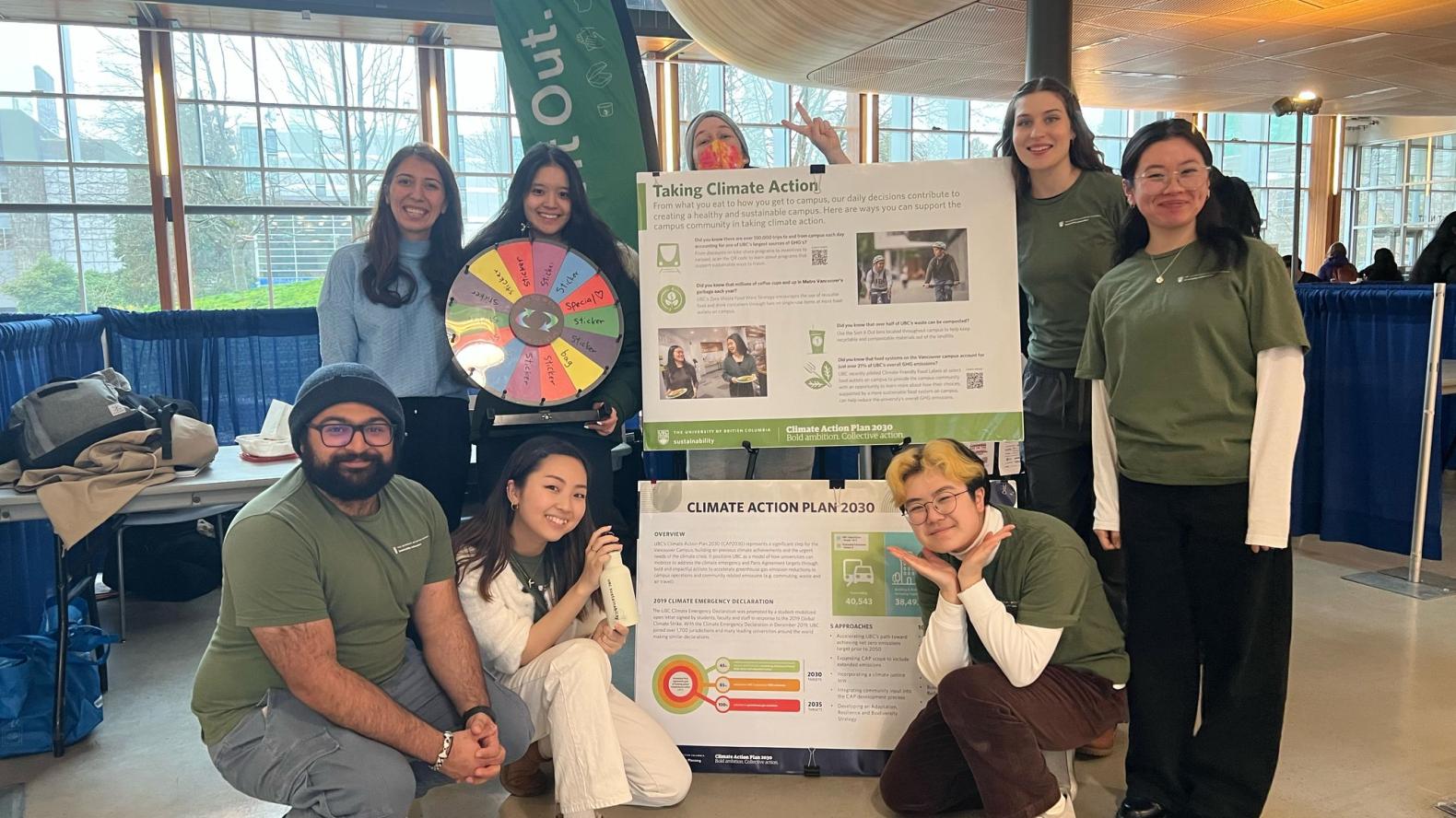
This past year, the Climate Action C+CP cohort of the UBC Sustainability Ambassadors Program worked in partnership with the Sustainability Hub and Campus + Community Planning to further community engagement and visibility around UBC’s Climate Action Plan 2030 (CAP2030). The cohort primarily focused on raising awareness about UBC’s climate goals around the two key areas: Scope 2 (indirect greenhouse gas emissions from electricity used on campus) and Scope 3 (indirect impact emissions from activities such as commuting, waste disposal, and food systems) emission reduction. Their aim was to increase outreach with more students, staff, and faculty engaged in climate action at the community level.
The cohort was led by third-year undergraduate student Keiran Hoang as the project lead and mentored by PhD student Aida Mohajeri as the cohort lead. Over the course of the year, the team developed and implemented a series of engagement and outreach activities and initiatives to encourage people to learn about and connect with CAP2030. Their accomplishments include:
-
Collecting 80+ responses for our CAP2030 Awareness Survey from students across a range of faculties, including Arts, Applied Science, Commerce, and Engineering
-
Organizing 6 in-person events ranging from interactive booths to workshops alongside 2 digital campaigns, including initiatives for Climate Emergency Week and SDG Month.
-
Securing a $300 UTown@UBC Inspiring Community Grant to host our Upcycling Workshop during SDG Month.
-
Engaging over 235 students through our outreach efforts and events.
“We had creative freedom to decide how we wanted to approach climate action, whether it was through trivia, workshops, or digital outreach,” said Keiran. The team’s freedom to shape their own direction of climate action shaped a cohort culture that emphasized care, accountability, and deep collaboration beyond polished outcomes, as echoed by Aida. The series of events and engagement projects went beyond just sharing information; they were about collecting it too. Keiran added “we wanted to ensure an interactive, inclusive space where we get to know students, hear from them about their knowledge on CAP2030 and collect ideas on how to increase engagement and how they can apply it in their everyday life on campus.”
The Climate Action C+CP cohort’s work was grounded in peer collaboration, teamwork, knowledge sharing and inclusive engagement and learning, as students from different faculties and levels of experience came together to work towards shared goals.
For Aida, what stood out most was the way students approached the work, with a “willingness to collaborate, listen to one another, ask difficult questions, etc.”. Their questions reflected broader conversations about who is most susceptible to the climate crisis, whose voices are centered in sustainability efforts, and what solutions and equitable forms of climate engagement can they foster as students in their positions.